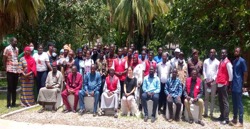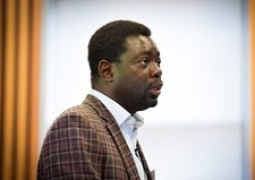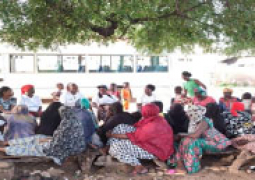
The main aim of the Lessons Learnt session was to evaluate the Disaster Relief Emergency Fund (DREF) operation, identify the success and constraints of the response to document gaps and areas of improvement, to collect feedback of the operation from beneficiaries and to document the lessons learnt to improve on future operations.
It could be recalled that on Monday 24th January 2022, sporadic gunfire was heard from Ballen village, Foni Kansala District, West Coast Region of The Gambia, not far from The Gambia/Cassamance border. The Economic Community of West African States (ECOWAS) military mission in The Gambia (ECOMIG) chased a truck carrying logs. The truck driver maneuvered within villages in the Fonis and headed towards Cassamance for sanctuary. The driver was chased by the soldiers’ crossing over the border in Cassamance and found themselves within the Mouvement des Force Democratic de la Cassamance (MFDC) territory.
This promoted the exchange of gunfire between the two forces. As a result, two soldiers were killed and seven held captive by MFDC.
The events culminated in tensions and insecurity that caused violence of all kinds and displacement of people.
On Sunday 13th March 2022, another incident was reported to The Gambia Red Cross Society Head Office through it Regional Office in West Coast Region that Senegalese soldiers and the MFDC Forces were in a heavy clash along the border line. The clash was in Lefou village in Cassamance. There was heavy population movement from the Cassamance end and the Gambian border villages to the villages in the main land.
Upon hearing and confirming the information, the GRCS management activated its ERT to the area to provide immediate assistance to the displaced families.
The GRCS through the Disaster Relief Emergency Fund (DREF) of the IFRC and Economic Security (ECOSEC) of the International Committee of the Red Cross (ICRC) was able to provide support to 302 households from the 1st clash and over 932 households from the 2nd clash with unconditional cash transfer, essential household items/non-food items, psychosocial support, emergency ambulance services and health and First Aid services.
The unconditional cash transfer was for 3 months through Mobile money transfer (Qmoney).
Jato S. Sillah, GRCS President expressed appreciation of the partnership it has developed with humanitarian and development institutions both within the country and beyond.
He thanked The Gambia Government for creating the enabling environment, partners for the collaboration and support, Red Cross volunteers for the commitment and all those who contributed to the success of the DREF operation.
Andrew Jarjou, GRCS Disaster Management Coordinator said responding to armed conflict situation of such magnitude was a relatively new phenomenon for The Gambia Red Cross Society but they are confident they performed extremely well.
Momodou Lamin Fye, Chairperson GRCS Disaster Commission said they hope IFRC will take back the recommendations and finds from the session, adding that they hope the session would also improve GRCS disaster response guidelines, delivery mechanism and community engagement.
Sarah Prisio, Technical Assistant for DREF IFRC Sahel Cluster said The Gambia Red Cross Society has been nothing but efficient and compassionate. She assured GRCS of IFRC continuous support knowing the good work they do to meet the urgent needs of those affected.
Alioue Niang, Head of ECOSEC Programme ICRC Sub-Delegation in Ziguinchor commended the GCRS for its responsiveness and its ability to quickly support communities in need. He added that positive feedbacks have been reported by beneficiaries both for the quality of the intervention and its timeliness.
Ebrima Bojang, Alkalo of Ballen village and a beneficiary thanked The Gambia Red Cross Society and partners for providing them with cash, essential household items/non-food items, psychosocial support, emergency ambulance services, health and First Aid services, among others during the crisis.



